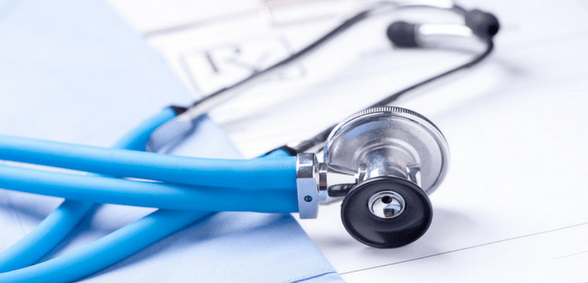
The Great North Care Record does exactly what it says on the tin; where previously local health services held pieces of information individually – making it difficult to share between different organisations – the Great North Care Record allows healthcare practitioners to access the most current details about their patients, 24/7.
We look at the key figures in the development, implementation and execution of the care record and the benefits it’s bringing to health services in the region
The Great North Care Record is a pioneering digital health project which is improving the treatment of three million people across the North East and North Cumbria. Currently, 96% of GP surgeries are securely sharing information using the record – accessing it 25,000 times per month.
The project, a collaboration between the £20m government funded Connected Health Cities and local NHS providers, is a more efficient way of sharing care information electronically between authorised healthcare practitioners with patients’ explicit permission. It means potentially life-saving key patient health information can be shared securely in hospital emergency departments, out of hours and ambulance services almost instantaneously so patients receive care more quickly.
Dr Mark Westwood, GP at The Village Green Surgery, North Tyneside, is chief clinical information officer for North Tyneside Clinical Commissioning Group (CCG) and primary care lead for the Great North Care Record; for Dr Westwood this is an opportunity engage surgeries across the region in collaborative practice.
“We’ve been working very hard to engage with surgeries across the North East and North Cumbria; there have been many challenges along the way, but we have made some fantastic progress which is making a real difference to people’s lives,” he says.
“With a mixed economy of IT systems across healthcare providers, and no previous large-scale cross-organisational projects, there have undoubtedly been lots of little – and large – issues and concerns along the way. However, what we have had is a tremendous appetite and willingness to make ‘joined-up care’ happen.
“The majority of GP surgeries – 357 or 96% of those covered by the 10 CCGs – have signed up to share patient data through a secure gateway system with 14 healthcare providers, including NHS foundation trusts, the North East Ambulance Service and out-of-hours services.
“Surgeries in the region use two types of records; the software, provided by Emis and TPP, uses secure datacentres rather than servers within practices. The Great North Care Record uses a secure information gateway to access patient data stored on these systems, allowing access to real-time patient information when it is needed for urgent care.
“Surgeries hold the richest source of clinical data and provide decades of information about patients’ lives, providing an unparalleled continuum of care that can be shared across and between healthcare providers. There is a growing confidence that we will achieve our ambition to make record access a patient-controlled and initiated activity.
“By joining up different clinical systems, we are enabling GPs and local healthcare providers to improve quality of care through higher quality clinical information at the point of care. Freeing up healthcare professionals from fax and ‘phone requests for ‘clarification of medications’, and sharing data in real-time, means we’re enabling them to spend more time concentrating on patients to make earlier, better, clinical decisions and treatments which will reduce harm and save lives. By improving the quality of patient care information flow, we should, ultimately, reduce unnecessary ‘paper flow’ and inaccuracies or misunderstandings.”
“We’ve seen real benefits since we implemented this shared health care record,” Dr Phil Stamp, A&E consultant at Northumbria Healthcare NHS Foundation Trust, says. “We can access key medical information about most patients arriving in our emergency department. We know the information is up-to-date and this means that we can treat our patients more efficiently and safely.”
Professor Joe McDonald, consultant psychiatrist at Northumberland, Tyne and Wear NHS Foundation Trust and Connected Health Cities director, agrees. “This new approach enables GP surgeries, hospitals and ambulance services to work as one at the point of need.
“Medical professionals can see patient records immediately, allowing them to make quicker, better, clinical decisions, saving precious time, speeding up treatment and potentially saving patients’ lives.
“Care records are like a fragmented jigsaw puzzle, with large chunks of information held at GP surgeries, in A&E, on the ward – but they don’t all work together. We’ve done lots of patient research, with many surprised that information isn’t easily shareable. Our ambition is to find ways of linking patient care in multiple care settings.
“With any health care interaction, authorised clinicians and health professionals can access patient information and are required to ask patients’ permission to view their records. Patients can decline – or opt out altogether – but by allowing us to access their details, it helps us to help them.”
Don’t forget to follow us on Twitter, or connect with us on LinkedIn!

Be the first to comment